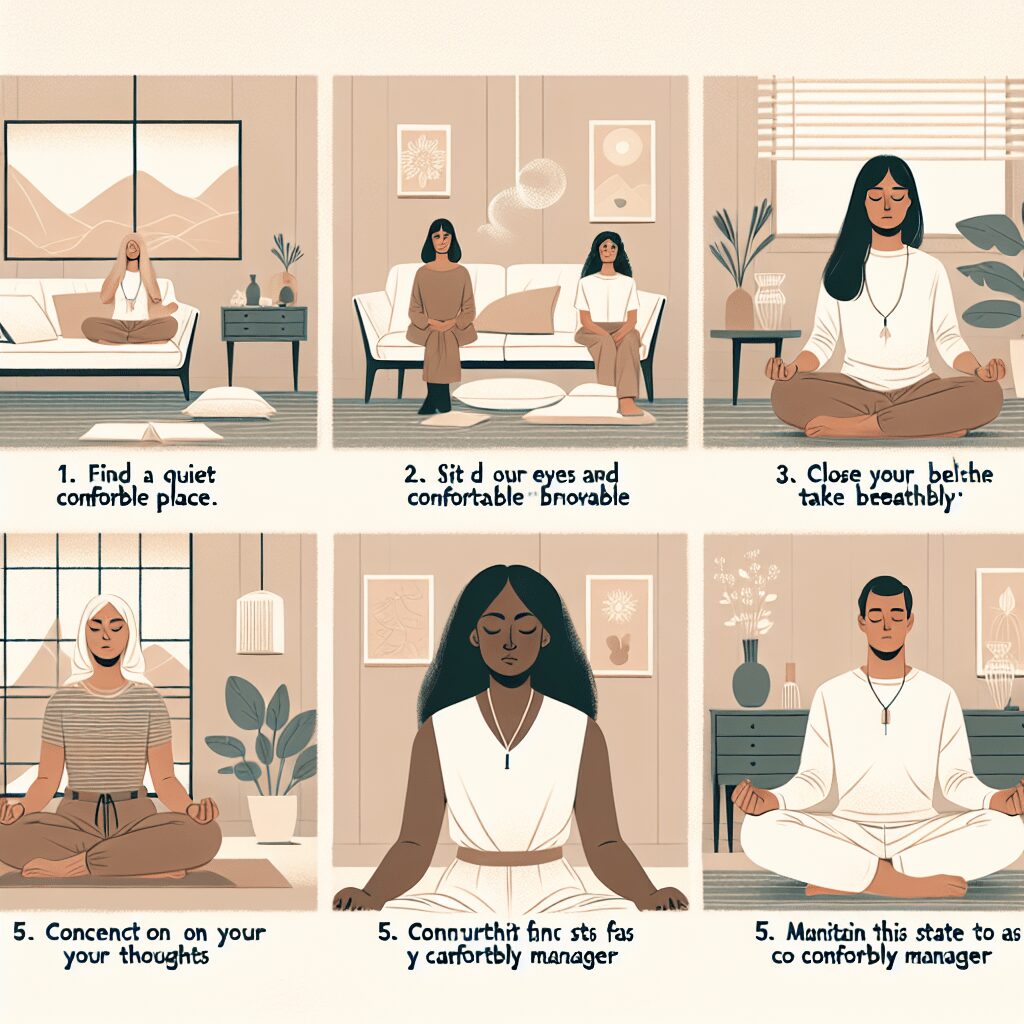
Prioritize your mental well-being daily. Enhance your life by nurturing your mental health with the Smart Meditation app. Break free from stress, alleviate anxiety, and enhance your sleep quality starting today.
How Can You Meditate When You Have Bad Anxiety?
Unlocking Inner Peace: A Guide to Meditating with Anxiety
Dealing with anxiety is akin to riding a roller coaster with no end in sight — it’s often a bumpy ride with unexpected turns. But what if I told you that meditation could be your ticket to getting off this endless loop? Yes, the thought might seem far-fetched, especially when sitting still and clearing your mind seems like an impossible feat amidst the chaos of anxious thoughts. But fear not! Mastering the art of meditation with a restless mind is possible, and I’m here to guide you through it.
The Why and How: Meditating Through the Storm
Why Meditation?
For starters, let’s debunk the myth that meditation requires a blank mind. On the contrary, it’s all about observation without judgment. It’s about acknowledging the presence of your thoughts without letting them control the narrative. A goldmine for anxiety relief, meditation has been scientifically proven to reduce stress, improve concentration, and enhance overall well-being.
How to Get Started?
-
Setting Realistic Expectations: Rome wasn’t built in a day, and neither is a successful meditation practice. Start small — think along the lines of 5 minutes a day and gradually increase the time as you get more comfortable.
-
Creating a Calm Nook: Find a quiet spot that feels safe and inviting. This could be a cozy corner of your room with cushions or a spot in your garden. The key is to have a go-to spot that signals to your brain, “It’s time to unwind.”
-
Embracing Guided Meditations: With the internet at our fingertips, accessing guided meditations is easier than ever. Apps like Headspace and Calm offer beginner-friendly sessions that lead you through the process, making it less daunting for anxiety sufferers.
-
Focusing on Your Breath: When your mind starts to race, bring your attention back to your breath. It’s a tangible focal point that can help anchor your thoughts. Try different breathing techniques, such as deep belly breaths or the 4-7-8 technique, to see what works best for you.
-
Practicing Mindful Movements: Sometimes, sitting still can feel like a Herculean task. In such moments, opt for mindful movement practices like yoga or walking meditations. These combine the clarity of meditation with gentle movements, perfect for those jittery days.
-
Being Kind to Yourself: Here’s a pivotal piece of advice — ditch the self-judgment. Your mind wandered off a dozen times? No biggie! Acknowledge it and gently guide your focus back. Meditation is a skill that improves with practice and patience.
Embracing Meditation as a Lifeline
Meditation isn’t a one-size-fits-all remedy, but it’s a tool with the potential to transform your relationship with anxiety. By incorporating it into your daily routine, you’re not just carving out a few minutes of peace; you’re investing in a lifetime of serenity.
Remember, the goal of meditation isn’t to eradicate anxiety but to change how you respond to it. Over time, those once towering waves of panic will start to feel like manageable ripples. And before you know it, you’ll be navigating the stormy seas of your mind like a seasoned sailor. So why not give it a shot? Your journey to inner calm awaits, just a breath away.





